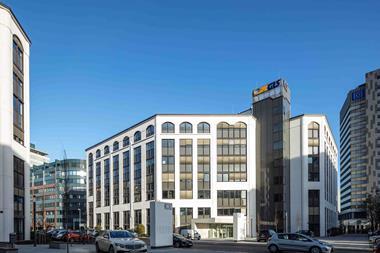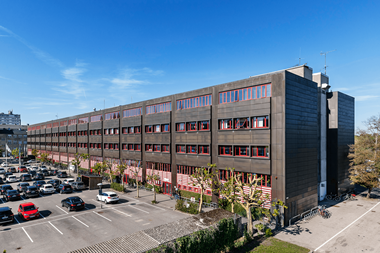A lack of construction activity is one of the main reasons German housing market is not in a bubble, according to a report by Aberdeen Asset Management.
Residential development in Germany, says Aberdeen, has been among the lowest in Europe and is not keeping up with demand. Aberdeen’s report outlines key reasons why Germany’s residential market is “close to fair value” and not overpriced.
Stephan Schanz, Aberdeen’s European property research senior analyst, said that, while house prices had increased in the past three years with some areas over-priced, there was strong evidence that Germany was stable on an aggregate level.
He said: “The price rises are far less concerning than the kinds being seen in London, Paris and Zurich. There are plenty of options for investors in established locations within the German investment centres and other large towns with a positive economic and demographic outlook.”
The fund manager’s findings appear to be supported by Knight Frank’s latest Global Price Index, which points to a slowdown in the rate of house price growth in the first quarter of this year. Germany recorded 0% growth in the first three months of 2014.
Aberdeen said the German government’s annual requirement of around 250,000 additional residential units until 2025 was not being met.
“A recent increase in construction activity may help alleviate this situation, but the shortfall is unlikely to be eroded at a national level for many years,” the report said.
Construction costs – including higher land costs – are set to rise, weakening the potential for growth in construction levels and therefore helping to avoid oversupply. Aberdeen estimates that since 2000, costs have risen by around 30%.
Strong migration, Aberdeen said, means Germany’s population continues to grow, with large German cities growing much faster than the national average. Younger, wealthier urban dwellers with higher birth rates will help sustain housing demand.
The report notes that, with unemployment at 7.1% in March this year, Germany’s workforce is at an all-time high, with net salaries growing steadily. German banks and consumers’ conservative views on debt should also pacify those concerned by the risk of a bubble.
“There are relatively few loans available to low-income families or high loan-to-value mortgages,” Aberdeen said. “The level of speculation from private (buy-to-let) investors is negligible compared to the UK.”
German house prices are just 6% higher than their 1994 level, Aberdeen said, in contrast to the UK where they are more than three times higher and France where they are 2.5 times higher. The sharp growth of the past three years follows a long period when prices were extremely stable, Aberdeen added.
German Property Federation (ZIA) managing director Axel von Goldbeck last month told delegates at IP Real Estate’s Global Awards in Munich that, with demand higher than supply, Germany was not in a housing bubble.
















